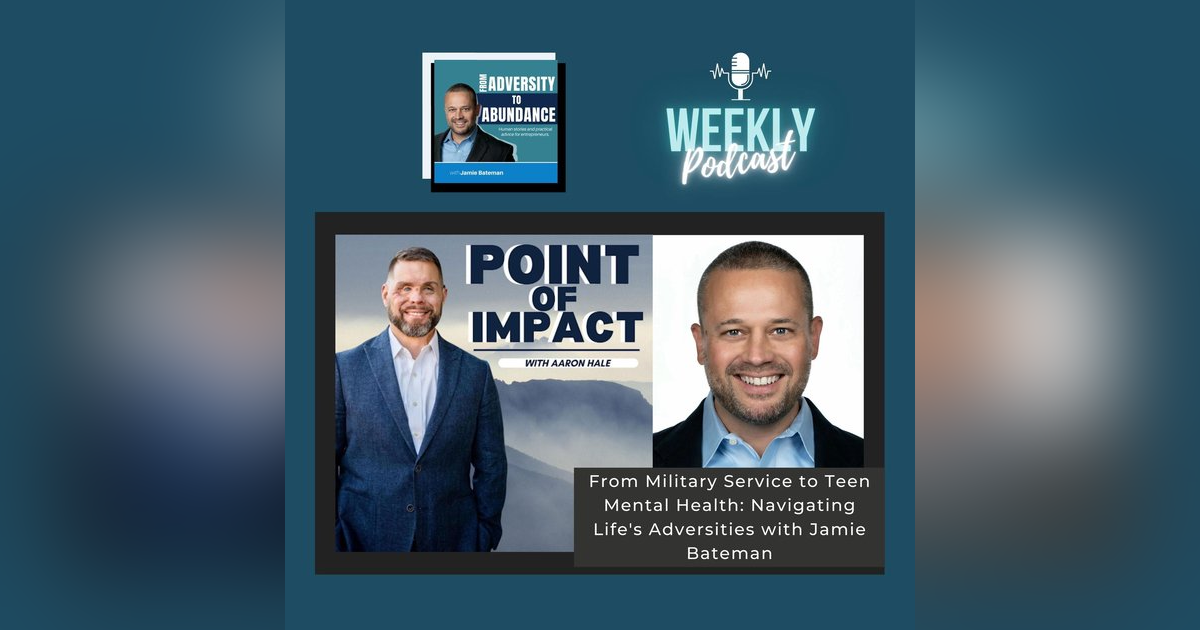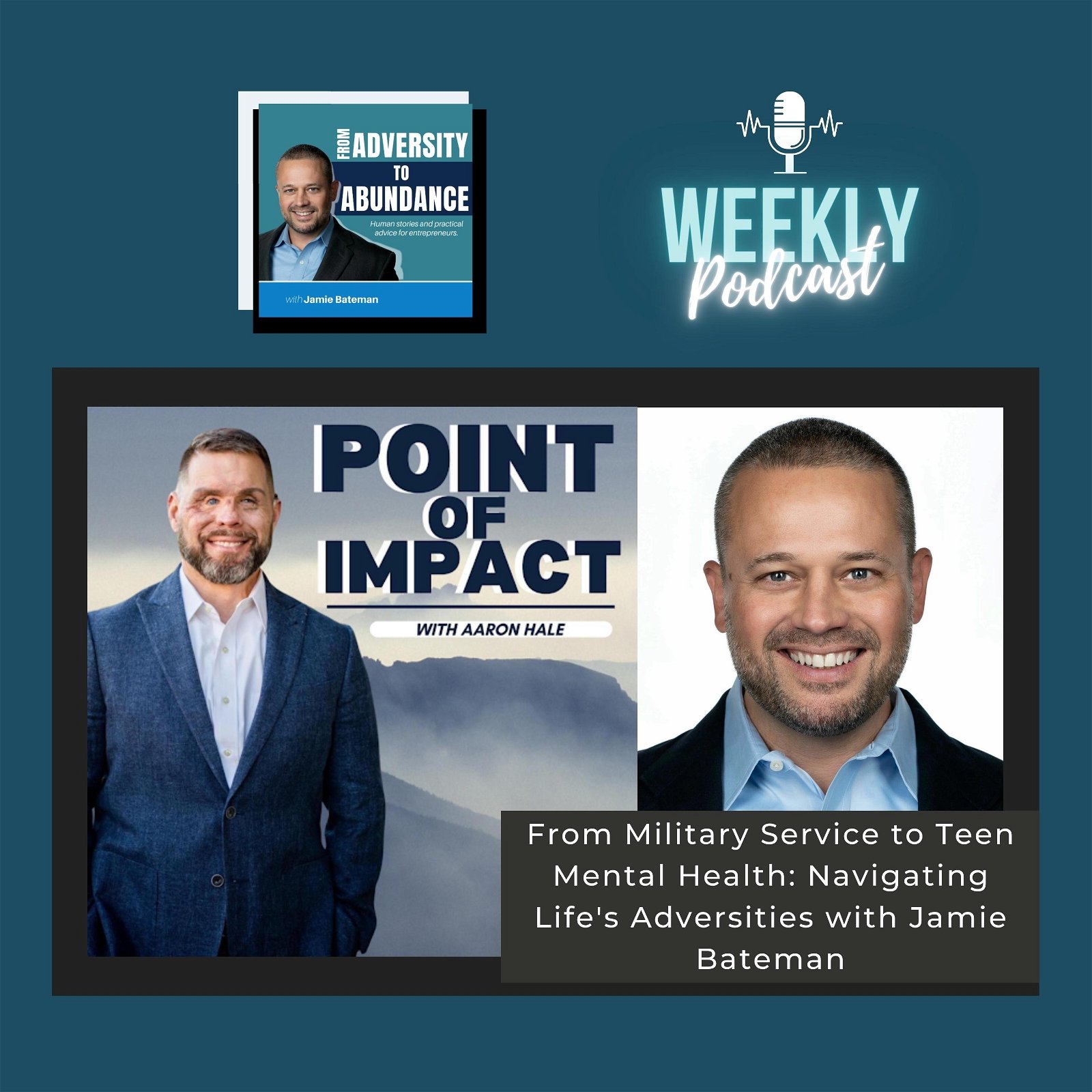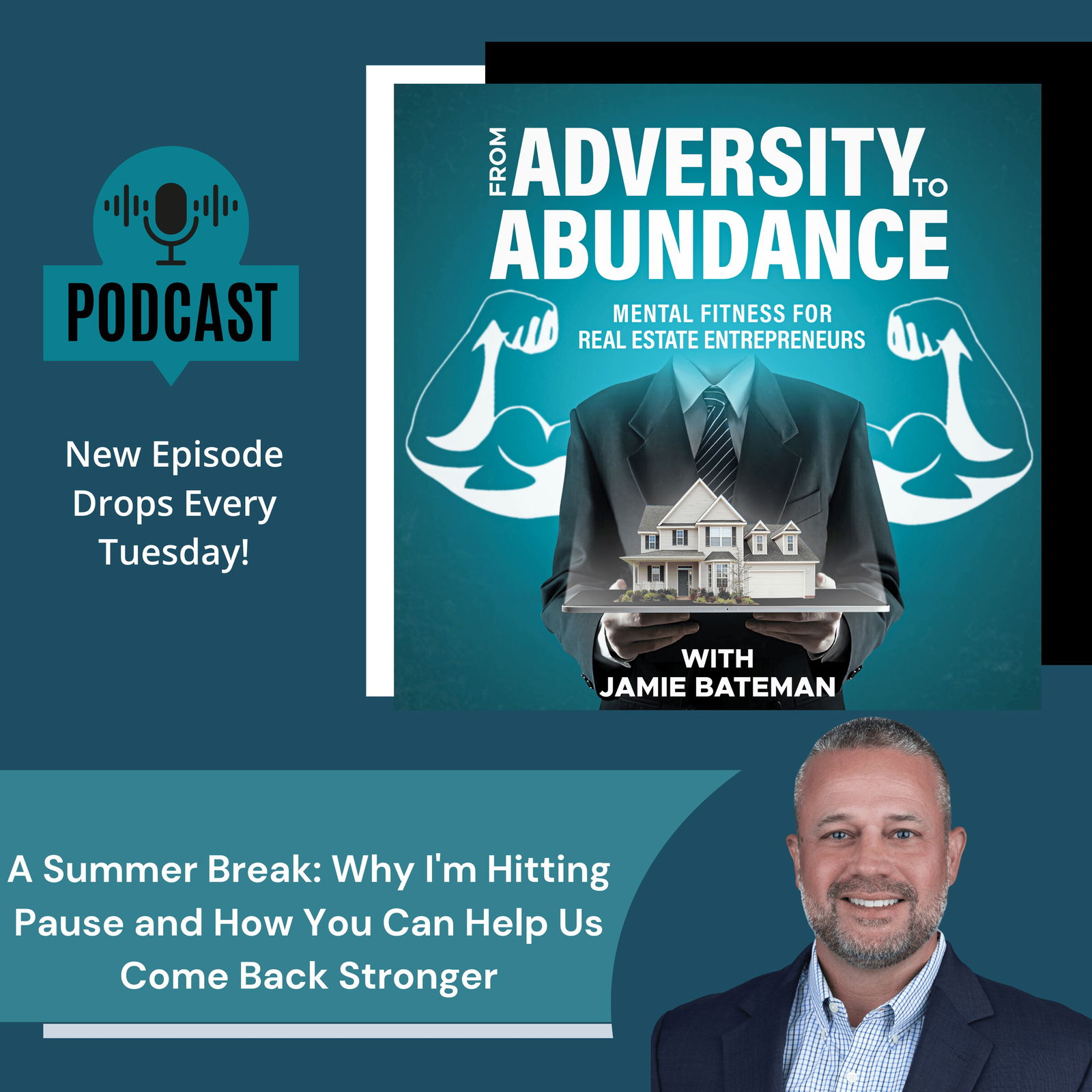From Military Service to Teen Mental Health: Navigating Life's Adversities with Jamie Bateman


If you're feeling overwhelmed and lost in navigating your teenager's mental health crisis, seeking solutions that seem out of reach, then you are not alone! The struggle to find effective ways to support your teenager's well-being can leave you feeling isolated and helpless, despite your best efforts. It's time to stop the cycle of frustration and discover actionable steps that can make a real difference for your teenager's mental health. Let's explore effective strategies together to bring about positive change and resilience in your teenager's life.
In this episode, Aaron Hale features Jamie Bateman as a guest on the podcast, delving into the challenging topic of mental health crises among teenagers. Drawing from his own experiences and personal journey, Jamie offers a candid and insightful take on supporting teenagers through mental health challenges. His practical strategies and genuine approach provide parents with valuable tools to navigate these complex situations, fostering an improved understanding and a sense of empowerment. Jamie's unique perspective and relatable storytelling make this episode a must-listen for any parent seeking guidance and support in the realm of teenage mental health.
In this episode, you will be able to:
- Discover the transformative power of storytelling in overcoming adversity.
- Learn effective strategies for navigating challenging situations and fostering a positive mindset.
- Uncover the keys to resilience and mental well-being during teenage mental health crises.
- Explore the journey from adversity to abundance, finding happiness amidst challenges.
- Embrace the profound impact of human connection in overcoming life's obstacles.
Even if this bad thing happens, I'll still be okay. I've been through bad things before. - Jamie Bateman
It's not a big commitment, but it goes a long, long way. Communicating with friends, family, God, if you believe in God, and then breath work are a few things you can do immediately to help navigate the day to day of a challenging situation. - Jamie Bateman
Aaron's Previous Episode:
Connect with Aaron:
WEBSITE: https://eodfudge.com/aaron-hale.html
YOUTUBE: https://www.youtube.com/@pointofimpactpodcast
LINKEDIN: https://www.linkedin.com/in/aaron-hale-1861477/
INSTAGRAM: https://www.instagram.com/eodconfections/
TWITTER: https://twitter.com/eodconfections
FACEBOOK: https://www.facebook.com/EODconfections/
TIKTOK: https://www.tiktok.com/@eodconfections?lang=en
Haven Financial:
https://www.myfinancialhaven.com/jamiebateman/
ATTENTION:
Unlock the secrets to a transformative life with “From Adversity to Abundance: Inspiring stories of Mental, Physical and Financial Transformation”. Buy your copy now and embark on a journey from challenges to triumphs!
AMAZON: https://www.amazon.com/dp/B0CGTWJY1D?ref_=pe_3052080_397514860
Connect with us
WEBSITE: https://www.adversity2abundance.com
Leave us a rating or review: https://www.adversity2abundance.com/reviews/new/ or here
Got comments, feedback or suggestions? We’d love to hear it! https://www.adversity2abundance.com/contact/
Follow From Adversity to Abundance Podcast
FACEBOOK: https://www.facebook.com/profile.php?id=100089126144055
INSTAGRAM: https://www.instagram.com/adversitytoabundancepodcast/
LINKEDIN: https://www.linkedin.com/company/89949391/admin/feed/posts/
YOUTUBE: https://www.youtube.com/@FromAdversity2AbundancePodcast
Connect with Jamie
BOOK: From Adversity to Abundance: Inspiring Stories of Mental, Physical, and Financial Transformation
LINKEDIN: https://www.linkedin.com/in/jamie-bateman-5359a811/
TWITTER: https://twitter.com/batemanjames





